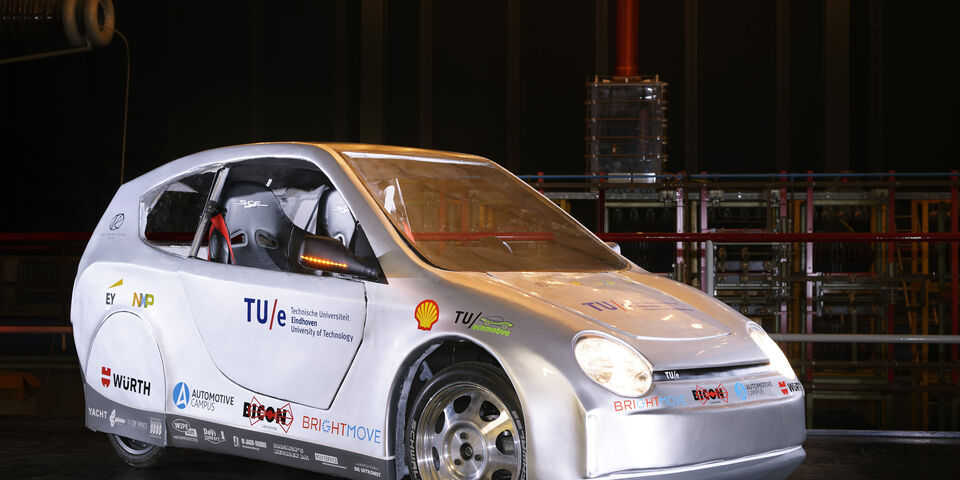TU/ecomotive presents energy-efficient city car Isa
Wednesday morning, underground in Gemini-Noord. Hands carefully cover the passcode to the entrance door. In the room, thirteen team members of TU/ecomotive have been working around the clock to finish Isa, the name they gave their EM-02. Mid May TU/ecomotive will participate in the Shell Eco Marathon with their energy-efficient, electric city car.
Isa was revealed this afternoon, if only for a select group of sponsors, people involved, and other relations. The presentation to the public on the Automotive Campus in Helmond is planned for May 7, and will be followed right away by visits to TU/e campus, among other places.
Isa is about eighty percent done, says team manager Hans de Penning. “It’s a mobile car with a full body, and the interior is nearly done, too.” “It’s mostly a matter of assembly now”, technical manager Frank Poort adds.
With Isa, TU/ecomotive wants to present a practical, comfortable, and fuel-efficient city car, comparable in size to, say, a Toyota Aygo. The car weighs about two hundred kilos (whereas the electric Renault Twizy weighs around five hundred) and is meant for city use. Its creators built it to go no faster than some sixty km/h.
The car is fitted with in-wheel engines, rear-wheel drive, an efficiency of 1 to 500 (if you were to translate its mileage to that of a gasoline car, that is), as well as twelve kilos worth of batteries. The three-part battery pack gives the car a ninety-kilometer range. It may not sound very impressive, and the men realize that, “but we’re not focusing on long distances”.
The car has been developed in-house mostly, and parts like the frame and body have been made for TU/ecomotive especially. That also goes for the two electronic systems that control Isa. The drive system consists of a dashboard and engine controller, which make the car drive and make the lights work, for example. Isa will be equipped with an infotainment system including GPS, music, a connection with the driver’s cell phone, and an Internet connection. Those who are interested can track Isa’s journey and monitor her performance.
The team is still waiting for approval by the Dutch traffic service RDW, so it’s free to hit the road in the Netherlands.





Discussion